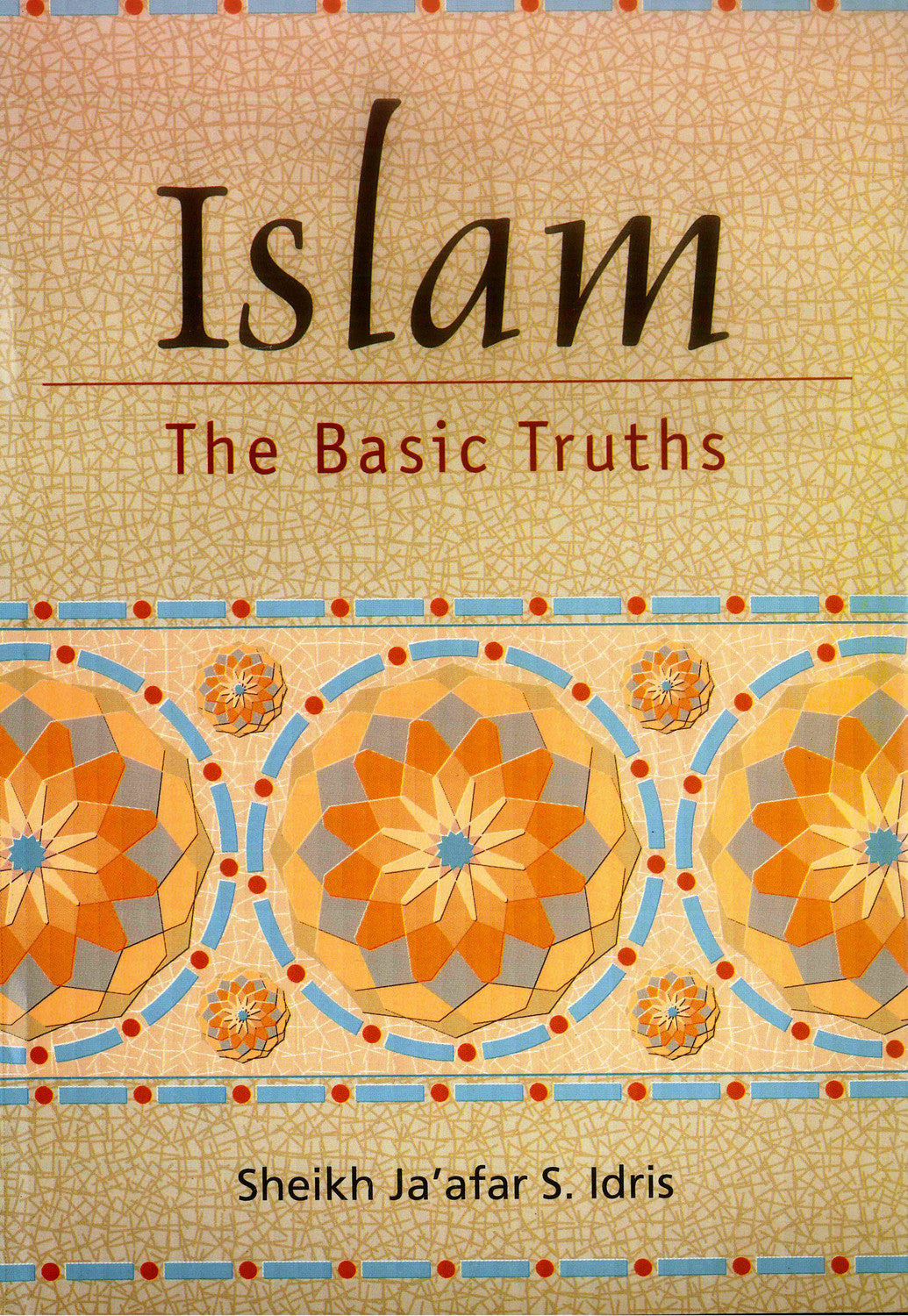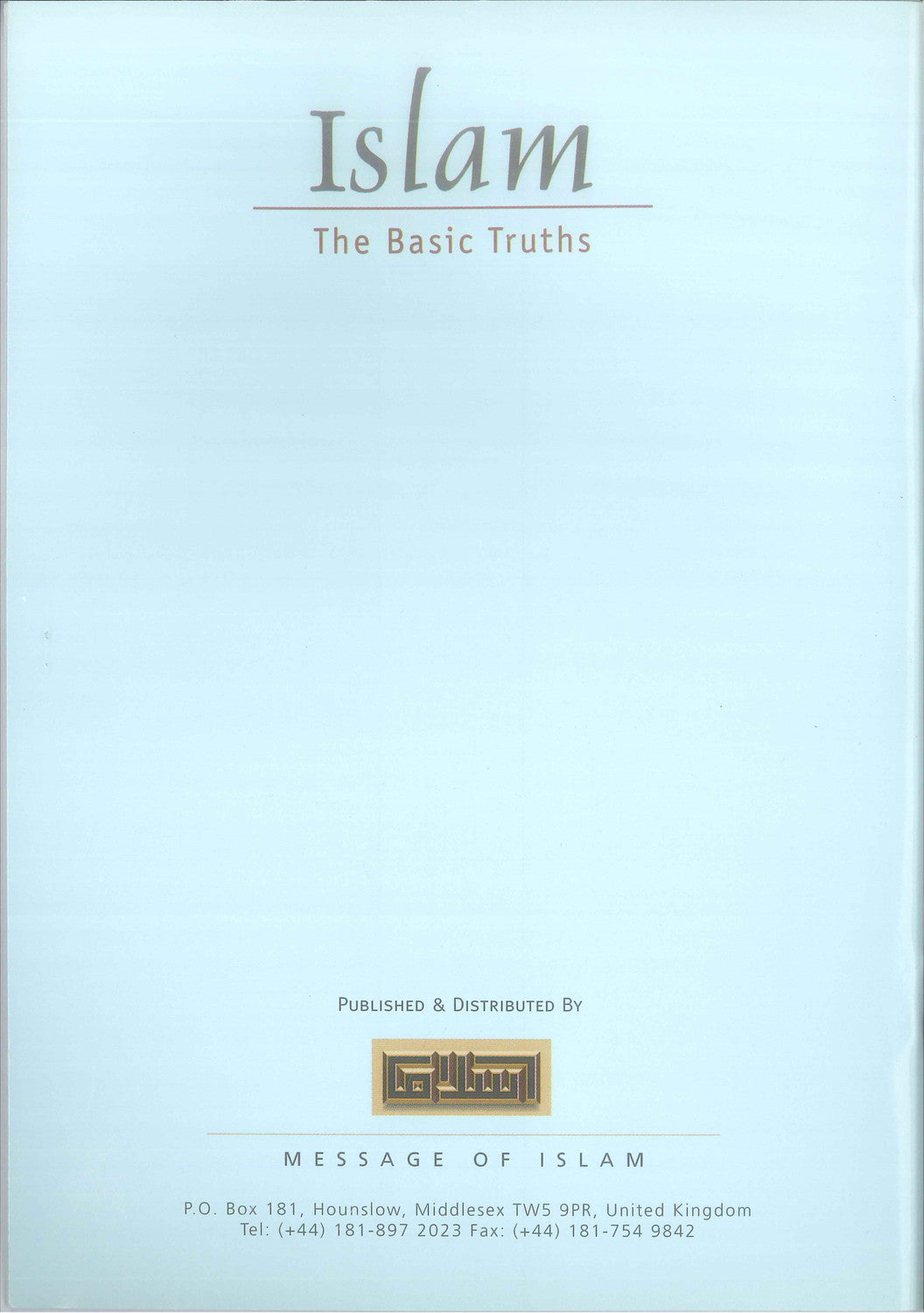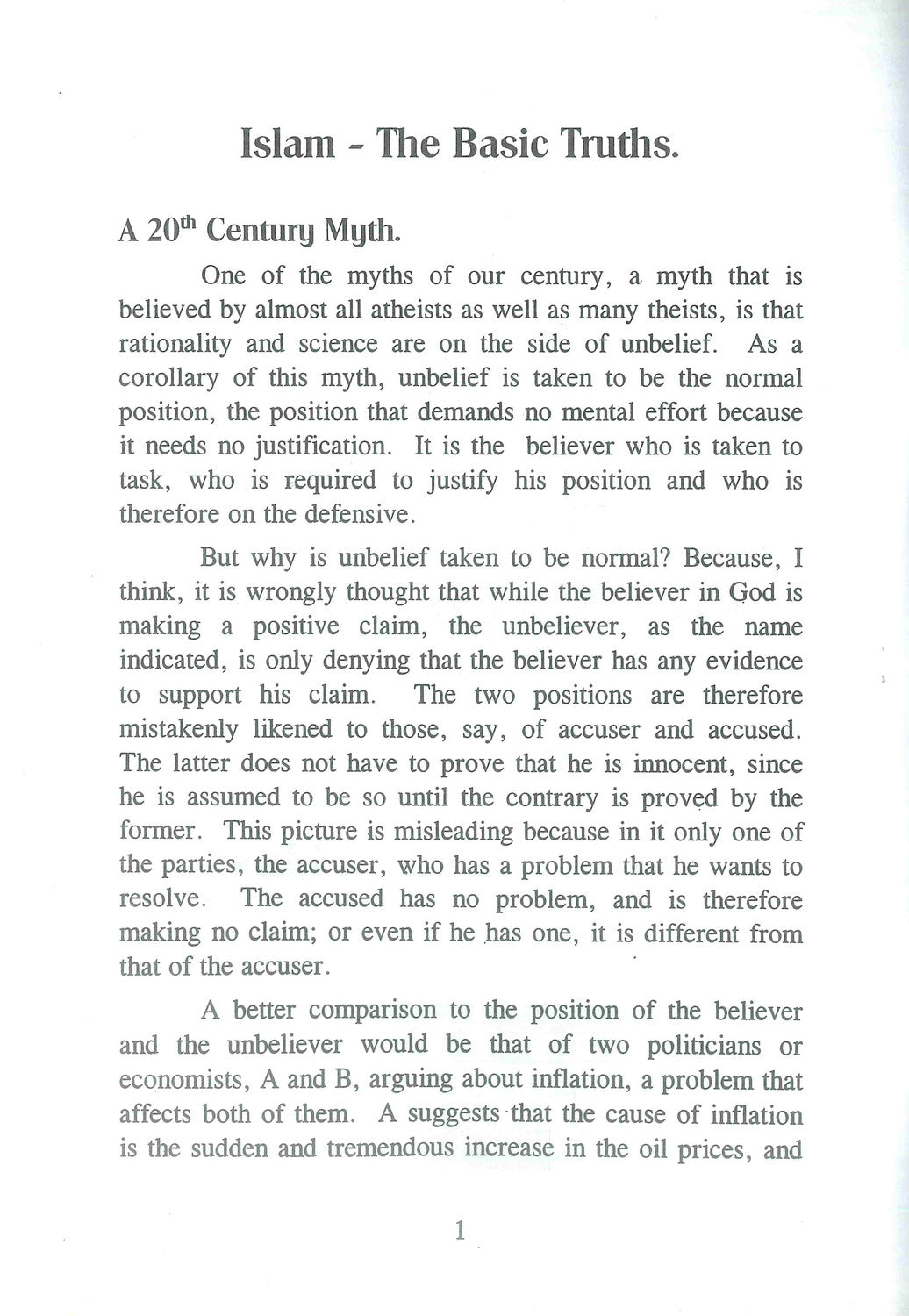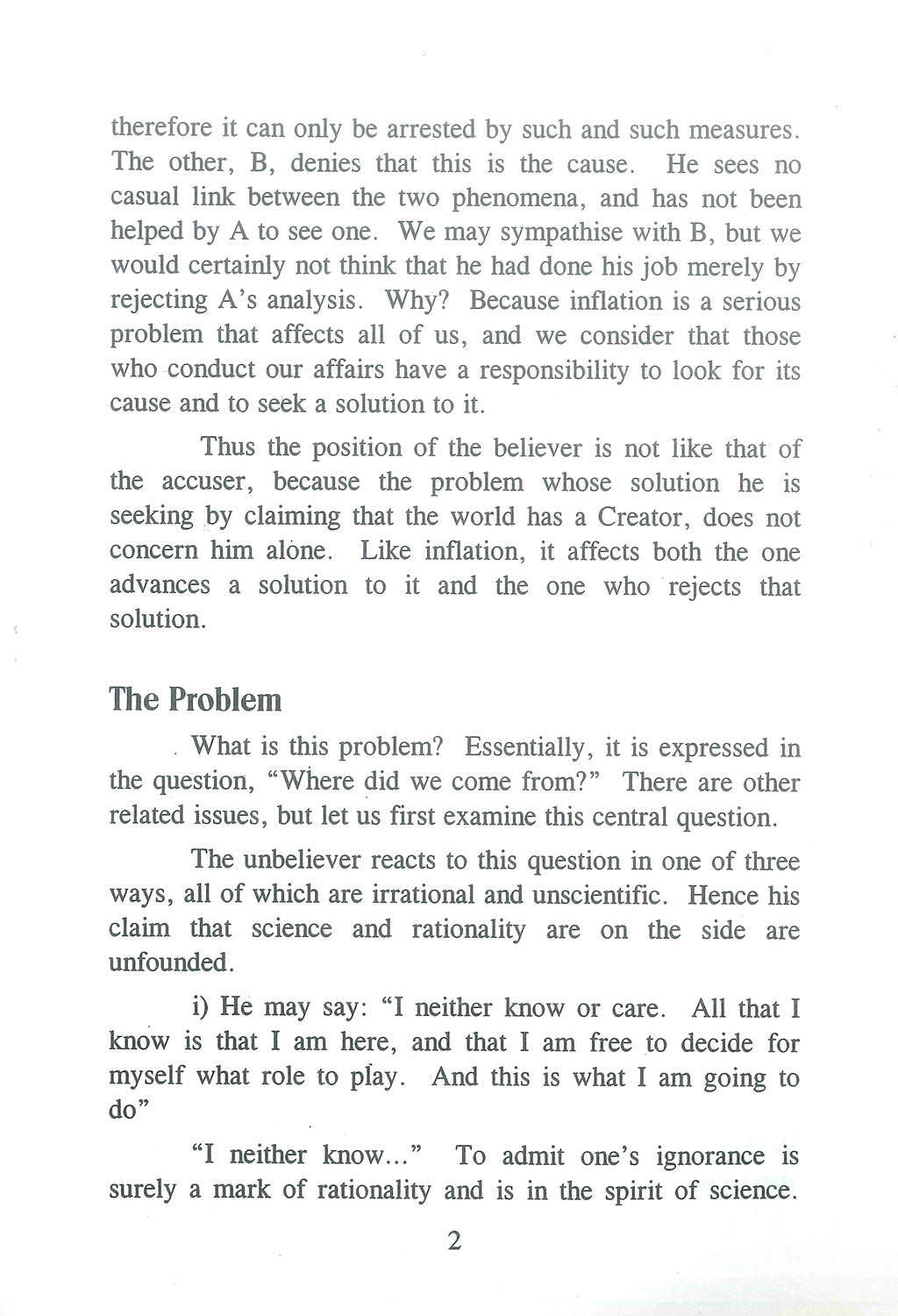Islam The Basic Truths by sheikh jaafr S. Idris
Islam The Basic Truths by sheikh jaafr S. Idris
Publisher:
UK Islamic Academy
Author:
sheikh jaafr S. Idris
Language:
English
Binding:
Soft Cover
Pages: 31
Size: 15x21cm
Couldn't load pickup availability
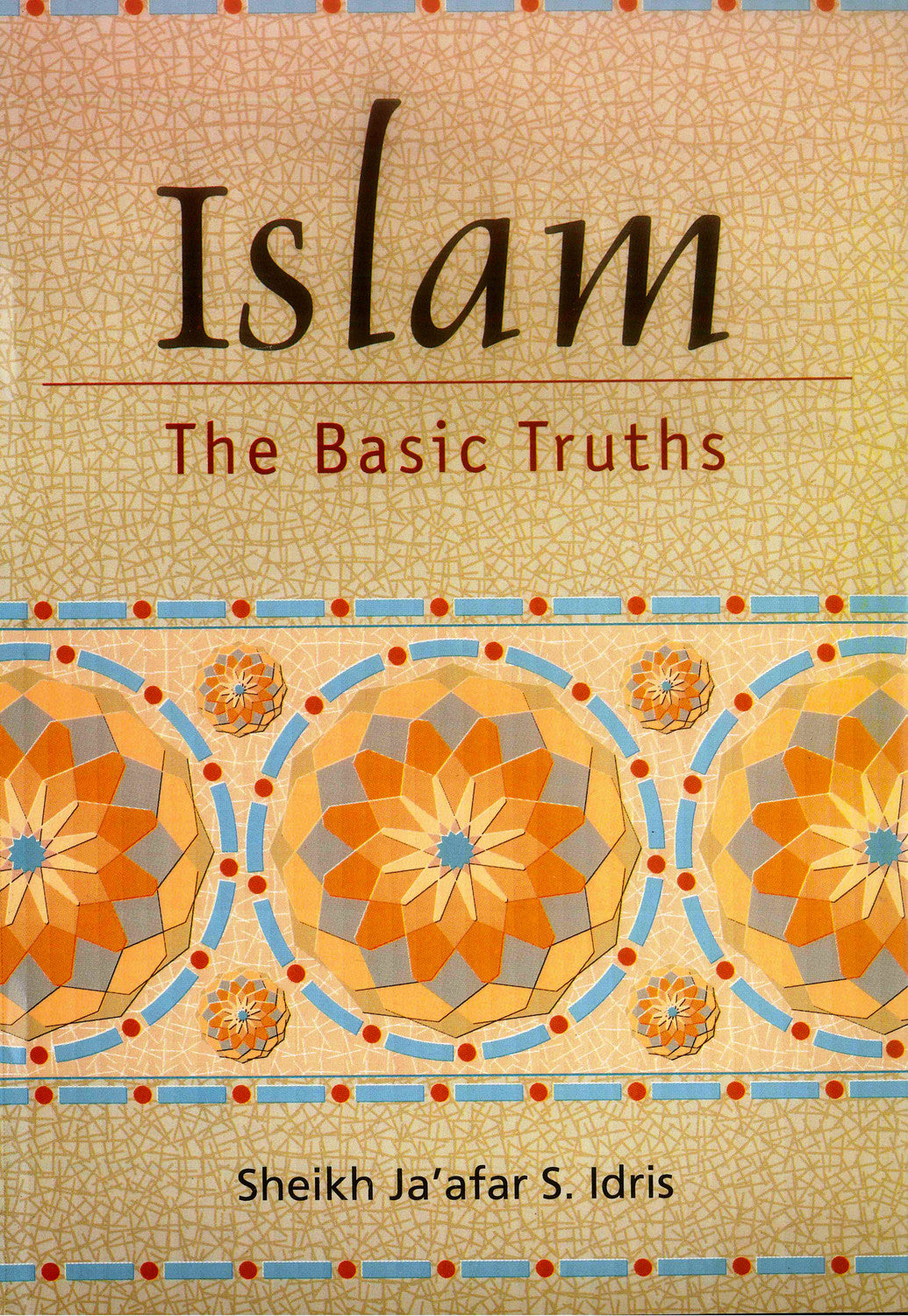
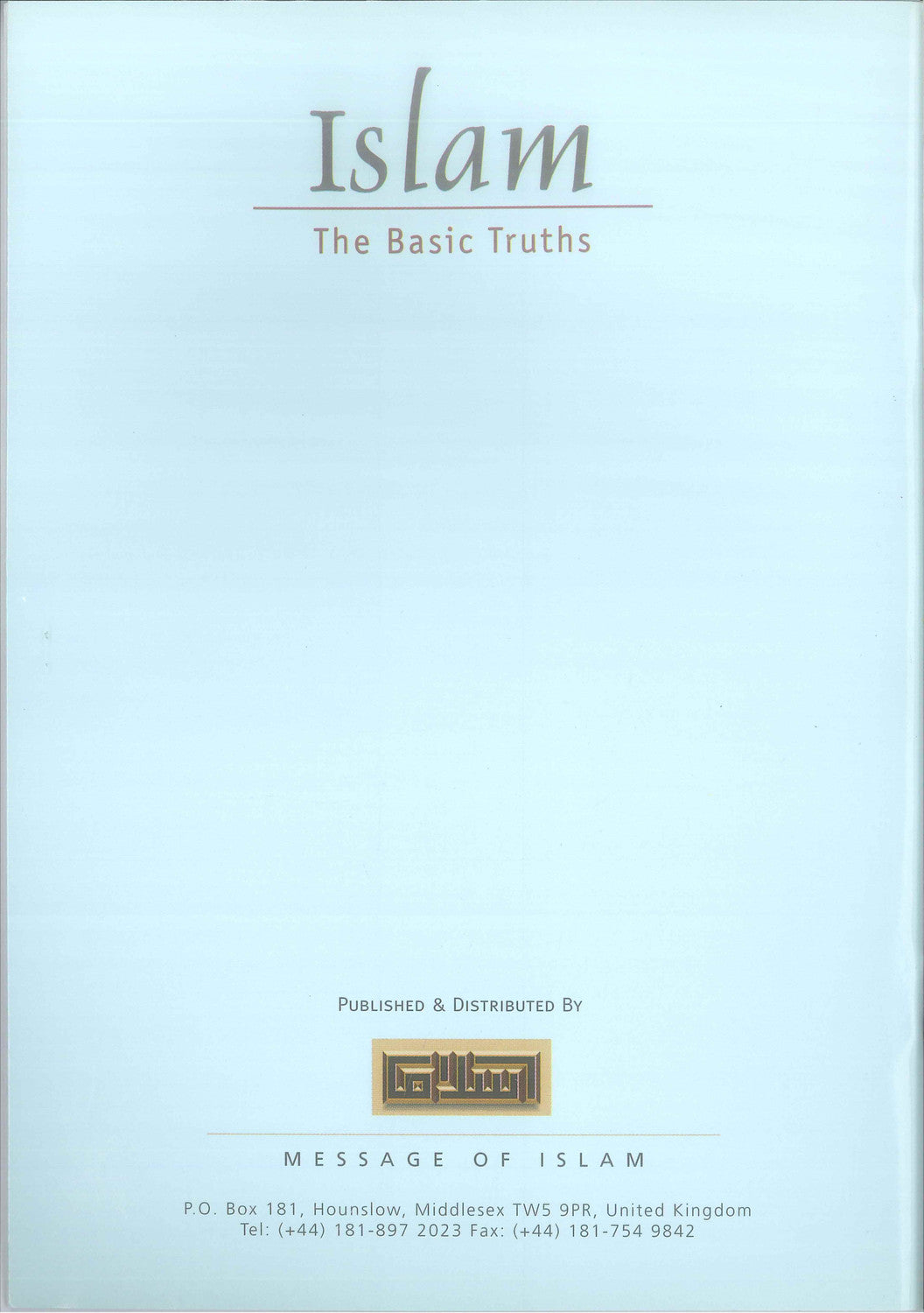
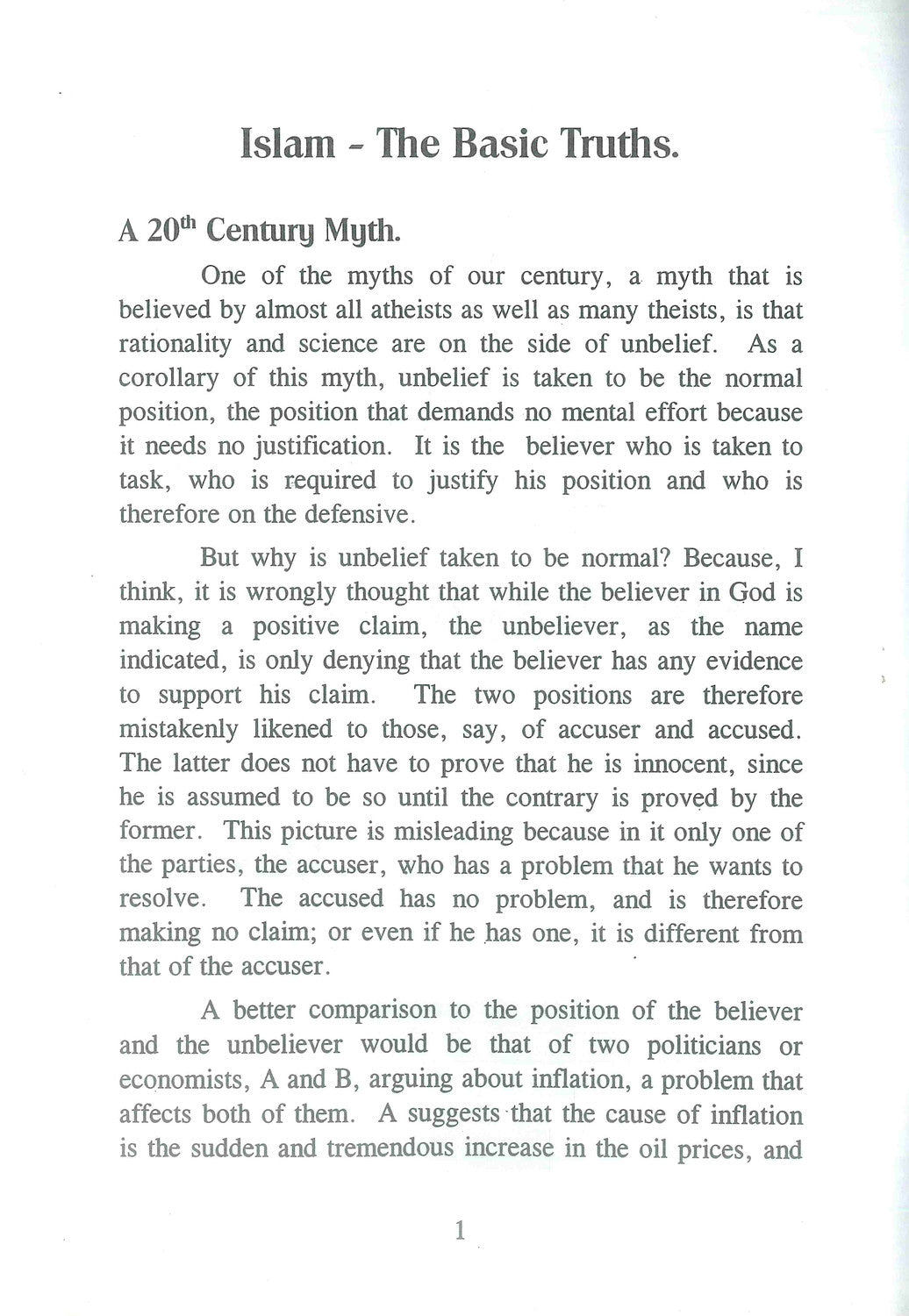
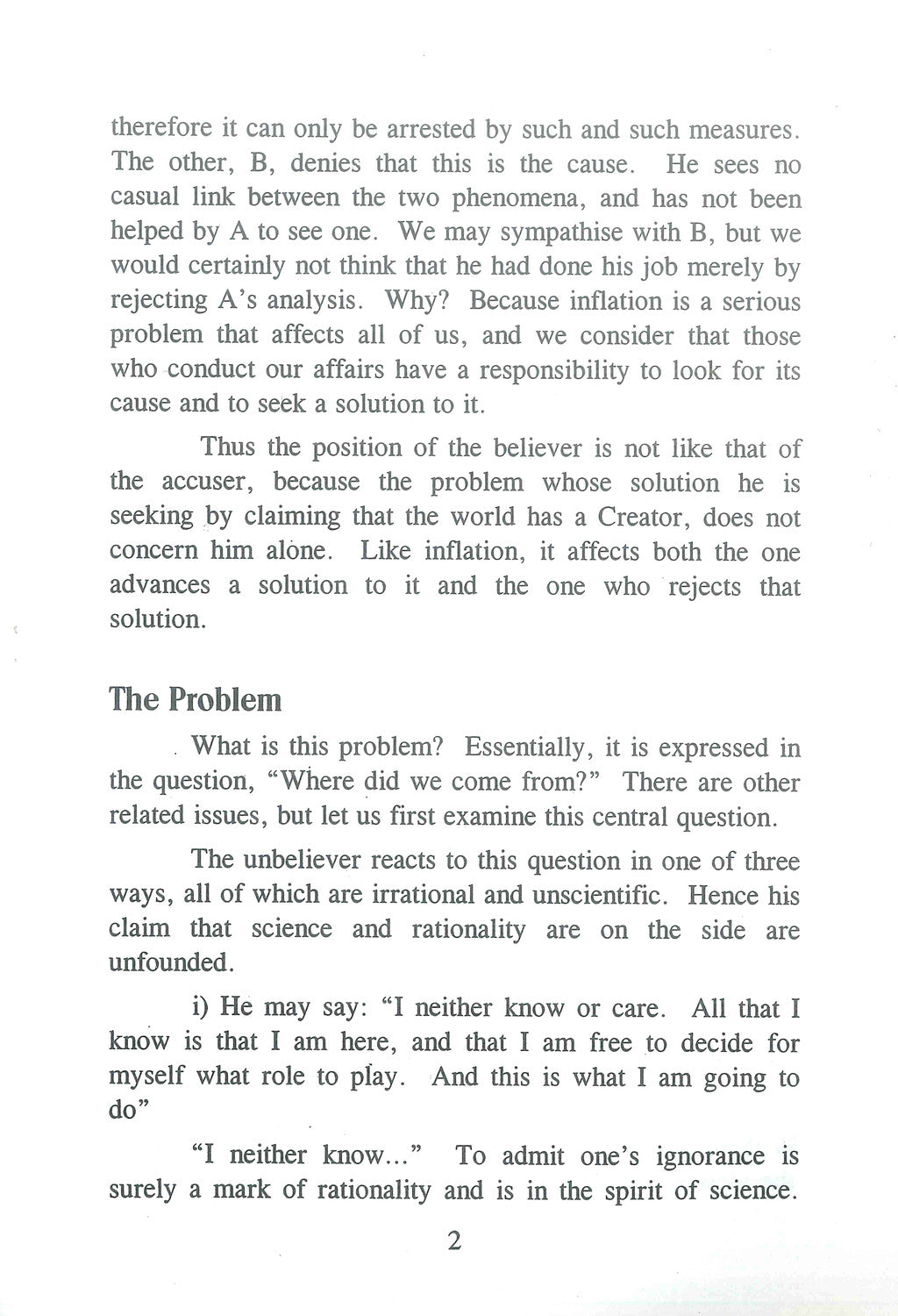
Collapsible content
Description of Book
The Basic Truths provides a clear and concise introduction to the core principles of Islam. This book covers fundamental topics such as the belief in One God (Allah), the importance of the Prophet Muhammad (peace be upon him), the five pillars of Islam, and the teachings of the Qur’an and Hadith. Aimed at both beginners and those seeking to deepen their understanding, it serves as a valuable guide to understanding the essence of Islam and its teachings
Publisher
UK Islamic Academy
Author
- sheikh jaafr S. Idris
Sample Pages - Content
Page:01
Islam
The Basic Truths
Sheikh Ja'afar S. Idris
Page:02
Islam
The Basic Truths
PUBLISHED & DISTRIBUTED BY
MESSAGE
OF ISLAM
P.O. Box 181, Hounslow, Middlesex TW5 9PR, United Kingdom Tel: (+44) 181-897 2023 Fax: (+44) 181-754 9842
Page:03
Islam - The Basic Truths.
A 20th Century Myth.
One of the myths of our century, a myth that is believed by almost all atheists as well as many theists, is that rationality and science are on the side of unbelief. As a corollary of this myth, unbelief is taken to be the normal position, the position that demands no mental effort because it needs no justification. It is the believer who is taken to task, who is required to justify his position and who is therefore on the defensive.
But why is unbelief taken to be normal? Because, I think, it is wrongly thought that while the believer in God is making a positive claim, the unbeliever, as the name indicated, is only denying that the believer has any evidence to support his claim. The two positions are therefore mistakenly likened to those, say, of accuser and accused. The latter does not have to prove that he is innocent, since he is assumed to be so until the contrary is proved by the former. This picture is misleading because in it only one of the parties, the accuser, who has a problem that he wants to resolve. The accused has no problem, and is therefore making no claim; or even if he has one, it is different from that of the accuser.
A better comparison to the position of the believer and the unbeliever would be that of two politicians or economists, A and B, arguing about inflation, a problem that affects both of them. A suggests that the cause of inflation is the sudden and tremendous increase in the oil prices, and
Page:04
therefore it can only be arrested by such and such measures. The other, B, denies that this is the cause. He sees no casual link between the two phenomena, and has not been helped by A to see one. We may sympathise with B, but we would certainly not think that he had done his job merely by rejecting A's analysis. Why? Because inflation is a serious problem that affects all of us, and we consider that those who conduct our affairs have a responsibility to look for its cause and to seek a solution to it.
Thus the position of the believer is not like that of the accuser, because the problem whose solution he is seeking by claiming that the world has a Creator, does not concern him alone. Like inflation, it affects both the one advances a solution to it and the one who rejects that solution.
The Problem
What is this problem? Essentially, it is expressed in the question, "Where did we come from?" There are other related issues, but let us first examine this central question.
The unbeliever reacts to this question in one of three ways, all of which are irrational and unscientific. Hence his claim that science and rationality are on the side are unfounded.
i) He may say: "I neither know or care. All that I know is that I am here, and that I am free to decide for myself what role to play. And this is what I am going to do"
"I neither know..." To admit one's ignorance is surely a mark of rationality and is in the spirit of science
sheikh jaafr S. Idris
Sheikh Ja'far S. Idris was a prominent Islamic scholar known for his expertise in Islamic jurisprudence, theology, and comparative religion. He contributed significantly to the spread of Islamic knowledge through his writings and teachings, emphasizing the importance of understanding Islamic principles in the modern world. His works have been influential in shaping contemporary Islamic thought and practice

